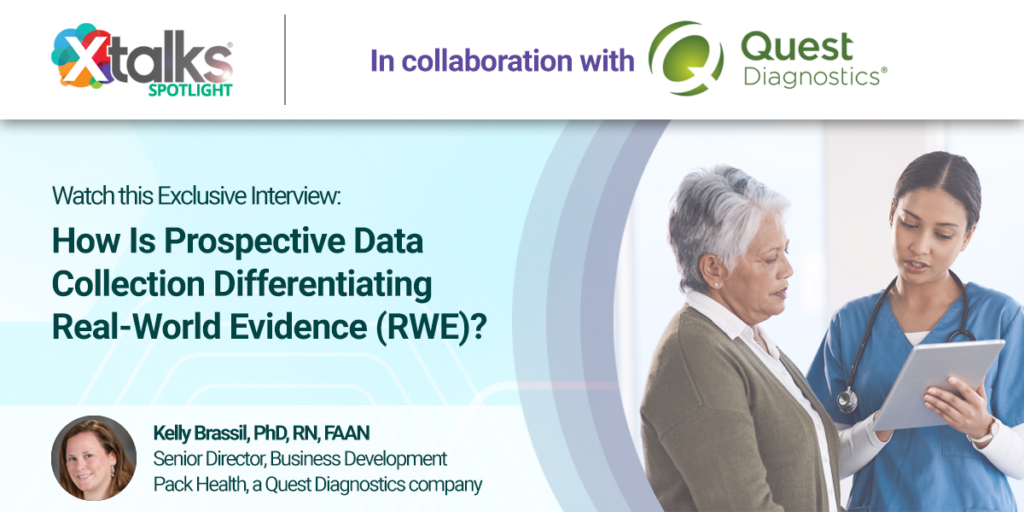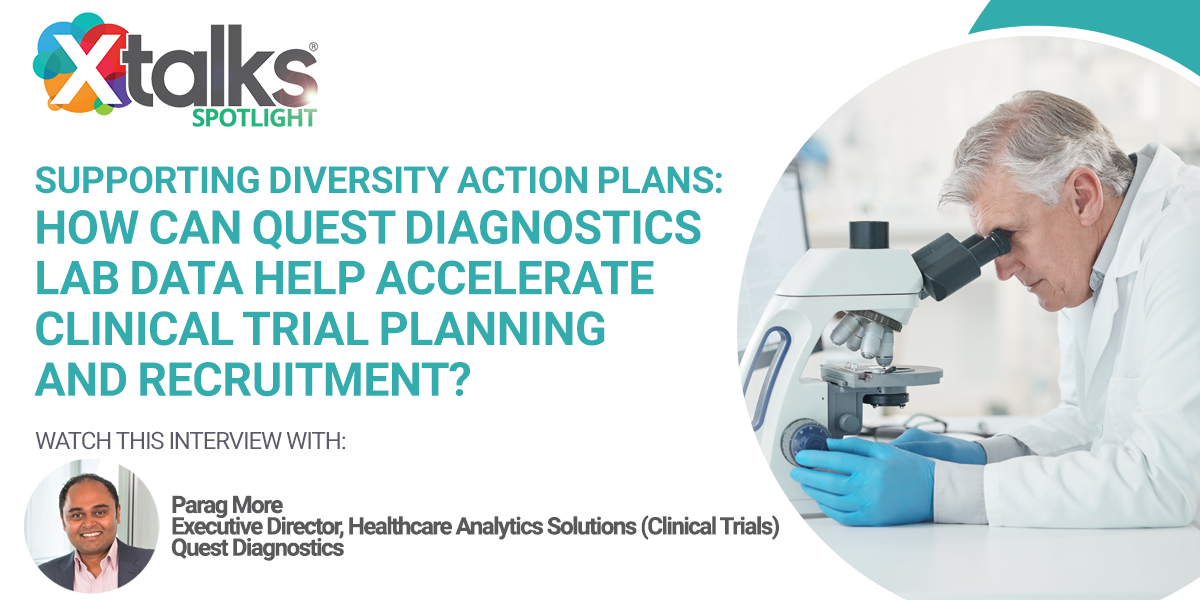Real-world evidence (RWE) is gaining increasing interest in the pharmaceutical industry, particularly in enhancing drug approval processes and optimizing clinical trial designs.

Senior Director, Business Development
Pack Health, a Quest Diagnostics company
RWE is being used to expand drug labels to include broader patient populations often underrepresented in traditional studies. Through post-marketing surveillance, RWE helps monitor drug safety and effectiveness and influence payer decisions by demonstrating the real-world effectiveness and cost-effectiveness of therapies. RWE supports not only regulatory approvals but also market access strategies, ultimately helping to identify and address unmet medical needs and improve patient care.
In an insightful interview with Xtalks, Dr Kelly Brassil, Senior Director, Business Development, at Pack Health, a Quest Diagnostics company, delved into the transformative role of RWE in pharmaceutical development.
With her extensive background in academic medicine and clinical practice, Dr Kelly Brassil shared perspectives on how prospective data can drive significant advancements in understanding patient experiences and improving treatment outcomes.
The Strategic Value of Unified, Population-Centric Datasets
Dr. Brassil began the discussion by emphasizing the critical role of comprehensive datasets in modern pharmaceutical research: “As we know, especially in the pharmaceutical space, data is being used for many purposes now. That’s up to and including either pre- or post-label approvals with the US Food and Drug Administration (FDA) based on the increased focus on particularly patient-generated or patient-reported evidence as well as the use of data for reimbursement and health plan considerations for inclusion on formulary.”
Dr. Brassil highlighted the necessity of a unified approach to data collection to enhance decision-making processes across the board, from FDA approvals to treatment plan selections, underscoring that “having insights that really allow us to understand patient experience on treatment in a specific point in time is critical to our ability to make best decisions.”
Overcoming Challenges in RWE Generation
When asked about the challenges faced by pharmaceutical companies in using RWE, Dr. Brassil identified the fragmentation of data sources — including clinical, demographic, wearables, lab, patient-reported outcomes (PRO) and qualitative data — as a major obstacle in current RWE generation. She detailed the complexity of integrating these disparate data sources to form a cohesive understanding of patient outcomes.
“The challenge that we often face when we’re looking at these very diverse data sources is that they can come from different groups of individuals at different points in time,” she stated.
This fragmentation necessitates more sophisticated data aggregation techniques that can synchronize various data types to provide a more accurate and comprehensive picture of patient health trajectories.
Prospective Data vs. Retrospective Data
In the space of data types, Dr. Brassil draws a clear line between prospective and retrospective data, elaborating on their respective uses and importance. “Retrospective data is so important because it’s available to us when and where we typically need it and allows for maybe more expedited analysis of datasets that are readily available,” she stated. Dr. Brassil assured that retrospective data will continue to be an inherent part of a pharmaceutical company’s ability to tell a real-world story.
Prospective data on the other hand, “goes beyond just the numeric values of what someone is experiencing to tell the real lived experience of an individual’s experience on treatment,” explained Dr. Brassil.
Prospective data collection is essential when specific, unique data types are needed that retrospective sources can’t provide. This type of data is particularly valuable in capturing real-time, patient-centered experiences that are critical for addressing unmet needs in treatment protocols and therapy adjustments.
The Dual Edges of Prospective Data Collection
Prospective data collection, while rich in potential, comes with its own set of challenges and benefits. Dr. Brassil shared that “prospective data can take time. It certainly takes thoughtful planning to be able to get IRB [Institutional Review Board] approval, for example, for the data to be collected in a way that isn’t always required of retrospective analysis.”
Yet, the strategic deployment of prospective studies can significantly enhance drug development. “Planning for prospective data collection, even prior to approval, for example, can help set up trials that can launch along with the drug approval and allow us to be able to collect that data in a time-sensitive manner.”
She also touched on the unique ability of prospective data to tailor research and product development to specific patient needs and treatment scenarios, providing an opportunity for pharmaceutical companies to create more targeted and effective therapies.
Real-Life Impact of Prospective Data
Dr. Brassil concluded the interview with a compelling example of how prospective data has influenced pharmaceutical strategies. “We collected data that included patient-reported outcomes, clinical outcomes from wearables and qualitative data, which provided a rich, multifaceted view of how patients were responding to a new pharmacologic agent,” she described.
This comprehensive data collection enabled the pharmaceutical company to refine drug formulations and administration methods, significantly enhancing patient adherence and satisfaction.
Dr. Kelly Brassil’s insights underline the critical role of RWE in shaping the future of pharmaceutical research and patient care. Her expertise offers a valuable window into the use of RWE in the pursuit of enhanced healthcare solutions.
This article was created in collaboration with the sponsoring company and the Xtalks editorial team.








Join or login to leave a comment
JOIN LOGIN